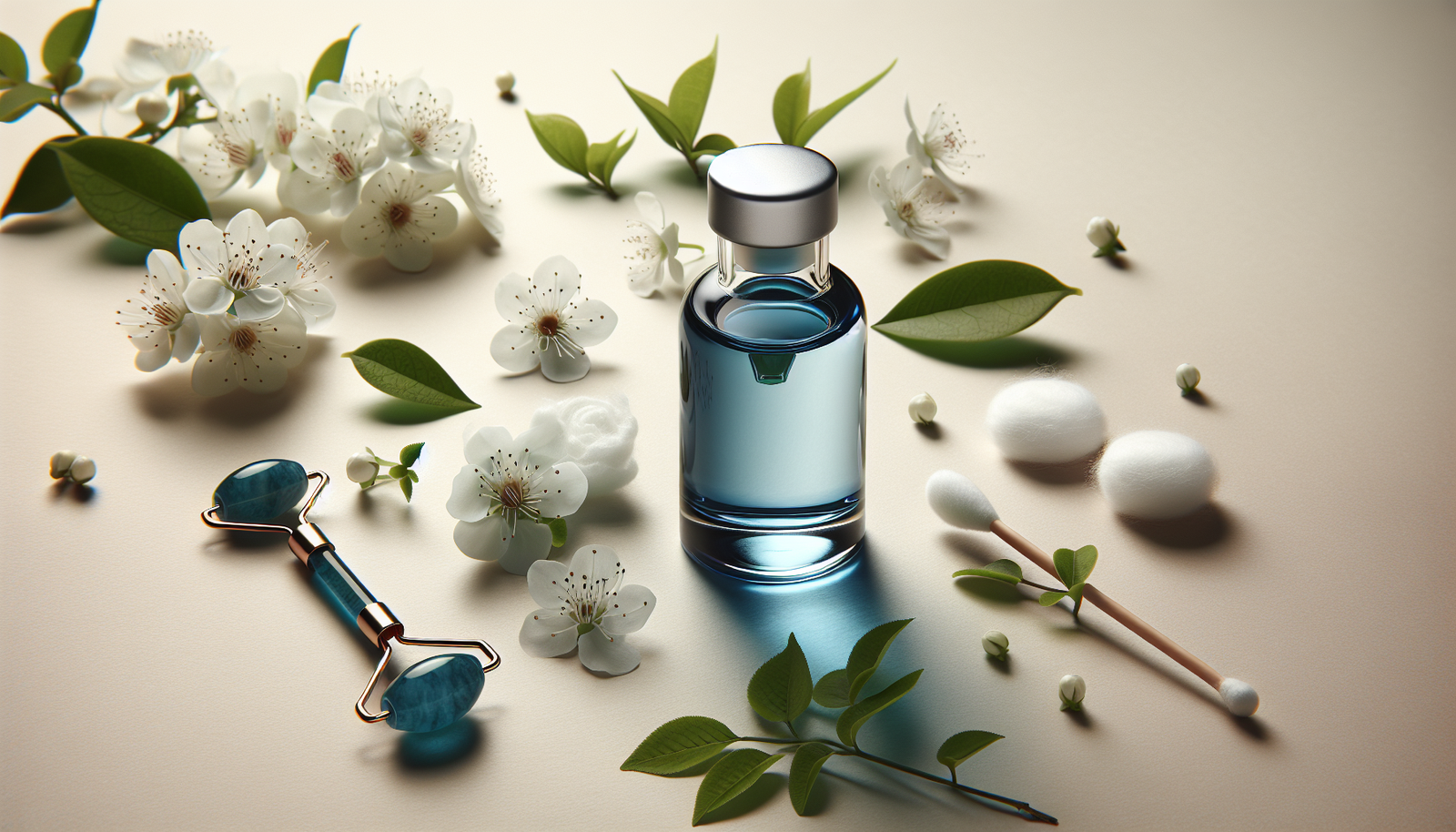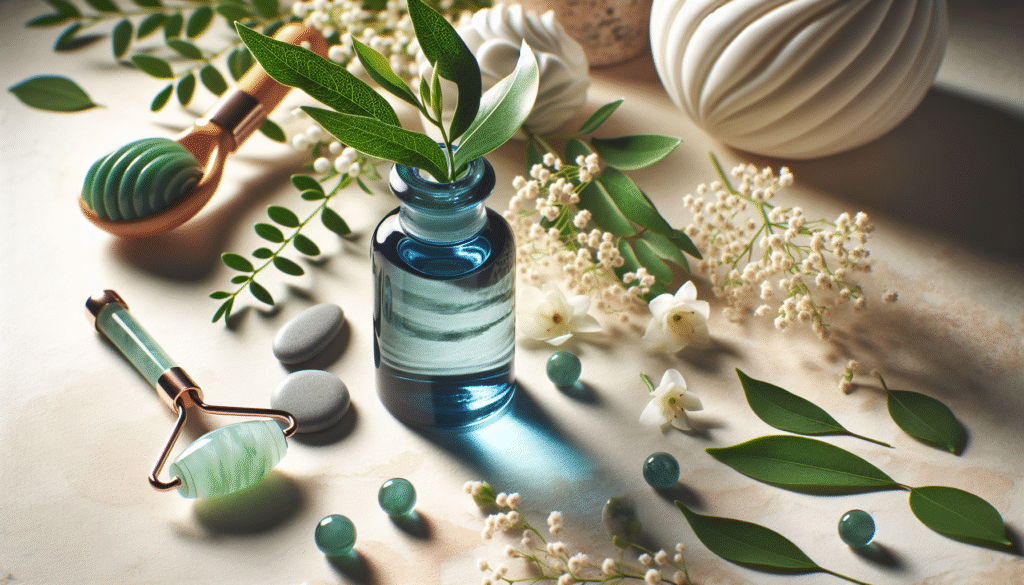
Have you ever considered incorporating unconventional ingredients into your skincare routine? One such ingredient, methylene blue, has garnered attention for its potential benefits in the realm of skin care. This article aims to provide you with a detailed understanding of methylene blue and how you can seamlessly integrate it into your daily regimen.

What is Methylene Blue?
To grasp the concept of incorporating methylene blue into your skincare, it is essential first to understand what it is. Methylene blue is a synthetic dye that has been utilized in various fields, including medicine and biology, primarily for its antibacterial and antiseptic properties. Its deep blue color is striking, but its therapeutic effects on skin health are what you’re focusing on in this discussion.
Methylene blue has shown promise in reducing oxidative stress, a significant contributor to skin aging. It is also being researched for its ability to improve skin tone and potentially reduce the appearance of hyperpigmentation and fine lines. Its multifaceted benefits make it an intriguing addition to your skincare arsenal.
Benefits of Methylene Blue for Skin
Incorporating methylene blue into your skincare routine may offer several benefits. Understanding these advantages will help you appreciate its role in skin health.
Antioxidant Properties
Methylene blue is known for its strong antioxidant properties. Antioxidants play a crucial role in combating free radicals that can cause premature skin aging. By neutralizing these harmful compounds, methylene blue helps maintain the skin’s youthful appearance and integrity.
Reduces Inflammation
Chronic inflammation can lead to a host of skin problems, including acne and redness. Methylene blue has been shown to reduce inflammation, making it an effective ingredient for those dealing with sensitive or irritated skin.
Skin Rejuvenation
Research indicates that methylene blue may promote cellular regeneration. This rejuvenation effect helps improve skin texture and tone, providing a more radiant appearance over time.
Hyperpigmentation and Dark Spots
Methylene blue may assist in reducing hyperpigmentation and dark spots, which can detract from an even skin tone. Regular use could lead to a brighter, more uniform complexion as it works to inhibit melanin production, the pigment responsible for these skin discolorations.
How to Incorporate Methylene Blue into Your Skincare Routine
Now that you’re familiar with the potential benefits, the next step is to understand how to effectively incorporate methylene blue into your daily skincare routine. Here are some practical strategies for integrating this ingredient seamlessly.
Choosing the Right Formulation
The first step in using methylene blue for skincare is selecting a suitable product. You can find methylene blue in various formulations, including serums, creams, and masks. Opt for a product that aligns with your skin type and concerns.
| Product Type | Ideal For |
|---|---|
| Serum | Targeting specific concerns like pigmentation and aging. |
| Cream | Hydration and barrier repair. |
| Mask | Intensive treatment for a quick boost. |
Understanding your skin’s needs is essential for maximizing the benefits of any skincare product, including those containing methylene blue.
Patch Testing
Before introducing a new ingredient into your skincare routine, conducting a patch test is vital. Apply a small amount of the product to an inconspicuous area of skin and observe for any adverse reactions over 24 hours. This step ensures that methylene blue is compatible with your skin.
Morning Routine Incorporation
Consider adding methylene blue to your morning skincare routine. If you are using a serum, apply it after cleansing and before applying your moisturizer and sunscreen. Its antioxidant properties can provide added protection against environmental stressors throughout the day.
- Cleanse: Start with a gentle cleanser suited to your skin type.
- Tone (Optional): If you use a toner, apply it after cleansing to prep your skin.
- Methylene Blue: Apply your chosen methylene blue product, allowing it to absorb.
- Moisturize: Follow up with a moisturizer to lock in hydration.
- Sunscreen: Finish with sunscreen to protect your skin from UV damage.
Evening Routine Incorporation
incorporating methylene blue into your evening routine allows it to work on your skin overnight, a time when your skin naturally undergoes repair processes.
- Cleanse: Remove makeup and impurities with a gentle cleanser.
- Exfoliate (1-2 times per week): If you incorporate exfoliation, do so before applying methylene blue.
- Methylene Blue: Apply the product directly to cleansed skin.
- Moisturize: Use a nourishing moisturizer to support overnight recovery.
Frequency of Use
While methylene blue offers numerous benefits, it’s essential to determine the right frequency of use. Depending on your product formulation, start with using it 2-3 times per week and gradually increase it to daily use as your skin adjusts. Monitor your skin’s response and make adjustments if necessary.
Combining Methylene Blue with Other Ingredients
To enhance the benefits of methylene blue, you might consider combining it with other powerful skincare ingredients. However, it’s crucial to know which combinations work harmoniously and which do not.
Safe Combinations
Vitamin C
Vitamin C is a well-known antioxidant that brightens the skin and improves overall texture. When combined with methylene blue, the two can work synergistically to enhance skin protection and promote a radiant complexion.
Hyaluronic Acid
Hyaluronic acid is renowned for its hydrating properties. Using it alongside methylene blue ensures that your skin remains plump and moisturized while reaping the antioxidant benefits.
Combinations to Avoid
Retinol
Retinol and methylene blue do not typically work well together, as retinol can be irritating on its own. If you use retinol, consider applying it on different nights than when you use methylene blue.
AHA/BHA
While alpha hydroxy acids (AHAs) and beta hydroxy acids (BHAs) are effective exfoliants, they may irritate the skin when used in conjunction with methylene blue. Therefore, it is advisable to space out their use in your routine.

Potential Side Effects
While methylene blue has a generally favorable safety profile, you should remain aware of potential side effects. Understanding these can prepare you for any skin reactions and ensure that you achieve the best results possible.
Skin Sensitivity
Some individuals may experience sensitivity or minor irritation when using methylene blue for the first time. This may manifest as redness or a tingling sensation.
Allergic Reactions
Though rare, allergic reactions to methylene blue can occur. Signs of an allergy include severe itchiness, swelling, or a rash. If you experience any of these symptoms, discontinue use immediately and seek medical advice.
Staining
One notable characteristic of methylene blue is its ability to stain. Be cautious when applying the product, and avoid contact with clothing or porous surfaces to prevent discoloration.
Professional Guidance
Consulting with a dermatologist or skincare professional before incorporating methylene blue into your skincare routine may be prudent, especially if you have specific skin concerns or conditions. They can provide tailored advice and recommend the best products for your unique needs.
When to Seek Help
Should you notice persistent irritation or unfavorable changes in your skin after using methylene blue, reevaluate its role in your routine. Seeking professional guidance can ensure that you maintain your skin’s health and prevent adverse reactions.
Wrapping Up
Integrating methylene blue into your daily skincare routine can offer numerous benefits, from antioxidant protection to skin rejuvenation. By understanding its properties, selecting the right formulations, and being mindful of skin sensitivities, you can unlock the potential of this unique ingredient.
As with any skincare adjustment, focus on consistency and listen to your skin’s responses. It is essential to remain patient and allow time for visible results to manifest. With the right approach, methylene blue could become a valuable asset in your journey toward healthier, more radiant skin.